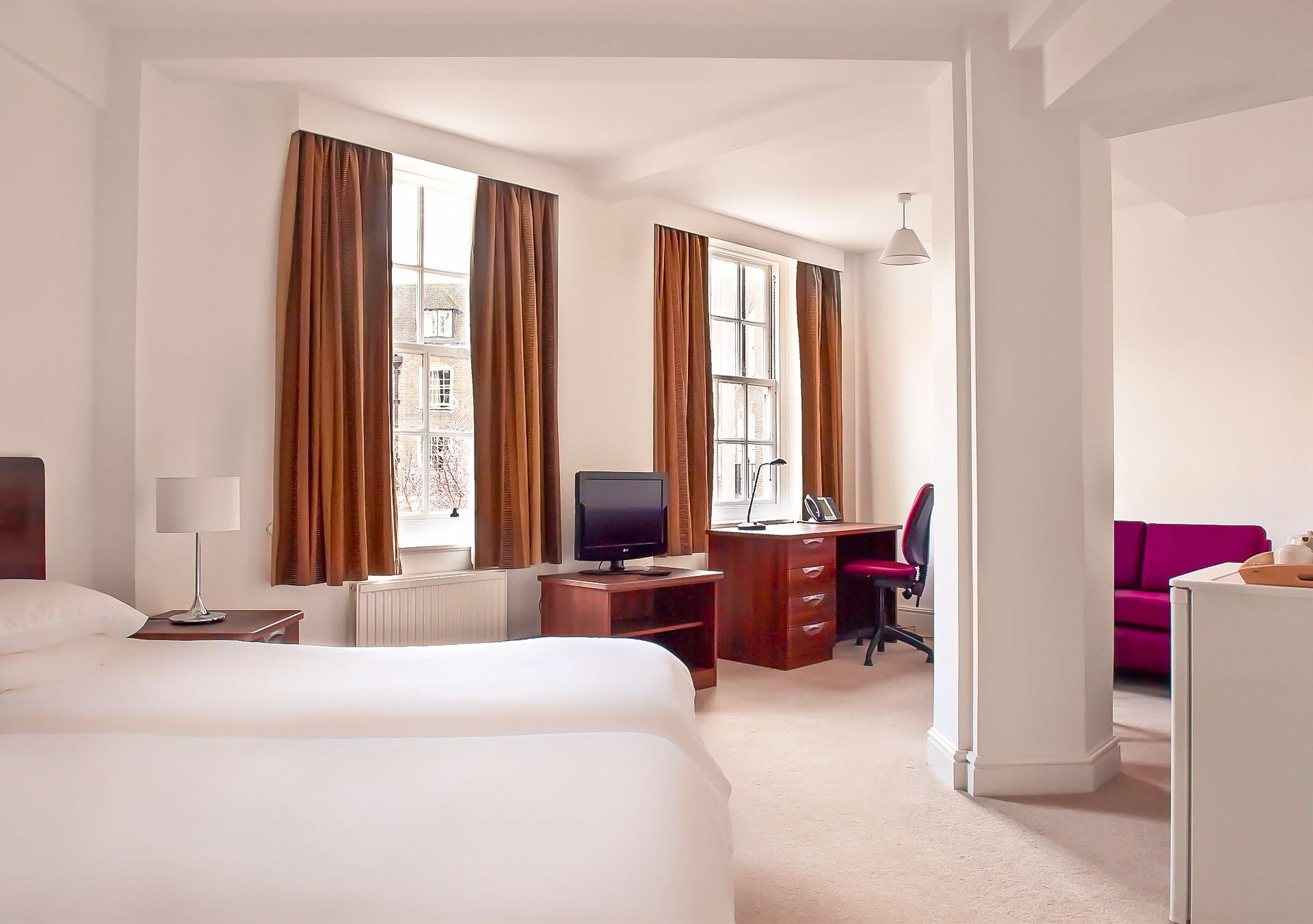York: the historic city
By the time of the Roman conquest of Britain, the area around York was occupied by a tribe known to the Romans as the Brigantes. The Brigantian tribal area initially became a Roman client state but later its leaders became more hostile to Rome. As a result the Roman Ninth Legion was sent north of the Humber into Brigantian territory.
The city itself was founded in 71 AD, when the Ninth Legion conquered the Brigantes and constructed a wooden military fortress on flat ground above the River Ouse close to its confluence with the River Foss. The fortress, which was later rebuilt in stone, covered an area of 50 acres and was inhabited by 6,000 soldiers. The site of the Roman fortress lies under the foundations of York Minster, and excavations in the Minster's undercroft have revealed some of the original walls.
During his stay in York, the Emperor Severus proclaimed York capital of the province of Britannia Inferior, and it is likely that it was he who granted York the privileges of a colonia or city. Constantius I died in 306 AD during his stay in York, and his son Constantine the Great was proclaimed Emperor by the troops based in the fortress.
The first Minster church was built in York for the baptism of King Edwin of Northumbria in 627. In 866, the Vikings raided and captured York. Under Viking rule the city became a major river port, part of the extensive Viking trading routes throughout northern Europe. The last ruler of an independent Jórvík, Eric Bloodaxe, was driven from the city in the year 954 by King Edred in his successful attempt to complete the unification of England.
In 1068, two years after the Norman Conquest of England, the people of York rebelled, only to by put down by William the Conqueror. He at once built two wooden fortresses on mottes, which are still visible, on either side of the river Ouse. The first stone Minster church was badly damaged by fire in the uprising and the Normans later decided to build a new Minster on a new site. Around the year 1080 Archbishop Thomas started building a cathedral that in time became the current Minster.
The city underwent a period of decline during Tudor times, and was the scene of bitter fighting in the Civil War of the 1640s. Following the restoration of the monarchy in 1660, and the removal of the garrison from York in 1688, the city was dominated by the local gentry and merchants, although the clergy were still important. York's many elegant townhouses, such as the Lord Mayor's Mansion House and Fairfax House (now owned by York Civic Trust) date from this period, as do the Assembly Rooms and the Theatre Royal.
York: the University
The University of York was established in 1963, and has since expanded to more than thirty departments and centres, covering a wide range of subjects. In 2003 it attracted the highest research income per capita of any UK university. The university has built a reputation in less than half a century that places it among the top 30 universities in Europe. In the last Research Assessment Exercise in 2008, York was also named as the sixth best research institution in the United Kingdom.
Established as an alternative to Oxford and Cambridge, the University attracts a student body with a wide range of backgrounds, including a large number of internationals and a relatively high number of state school students in comparison to similar universities like those of Bristol and Bath according to The Times Good University Guide. Situated to the east of the city of York, the university campus is approximately 200 acres in size, incorporating the York Science Park and the National Science Learning Centre. Priding itself on its wildlife, renowned campus lakes and greenery, the institution also occupies grand buildings in the historic city of York. The university comprises eight colleges, which have similarities to the traditional colleges of the collegiate Universities of Oxford, Cambridge and Durham, which also provide halls of residence for students, all of whom are allocated to a college. In May 2007 the university was granted permission to build an extension to its main campus, on arable land just east of the nearby village of Heslington. The land was removed from the green belt especially for the purpose of extending the university.
